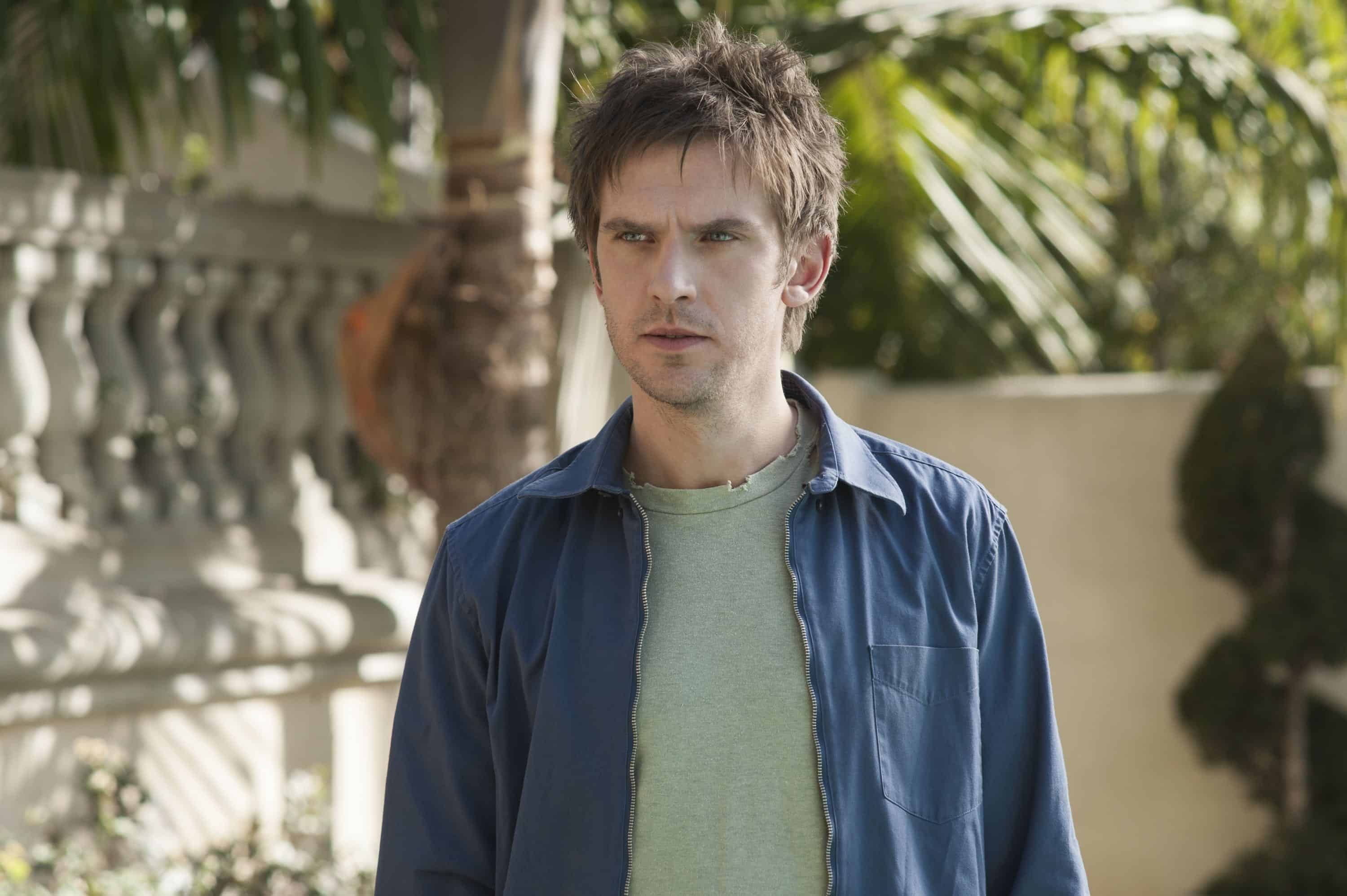
Coming out of Episode 3, I’m a little unsatisfied with the way things are going.
The action continues to unfold very slowly while the stakes are amping way up. Narratively, I’m craving more on such a level that watching the climax of the episode made me feel a tightness in my chest that was only relieved when I saw the preview for next week’s episode (which, no spoilers, looks like it’s going to be something I’ve personally waited for since episode one). David (Dan Stevens) needs to find Farouk (Navid Negahban) The Shadow King’s body so he can give it back to him, whereas everyone else wants to destroy it to prevent something very bad from happening.
Literally the only people telling David that giving him his body back is a good idea are Farouk himself, and Future-Syd (Rachel Keller), who we don’t really know anything about; David just trusts her implicitly because it’s a version of his girlfriend, who he trusts implicitly.
This somewhat paradoxical predicament might be easier to understand when you take into consideration the narrative elements delivered by Jon Hamm in every episode so far. This week’s segment was particularly interesting to me because it was a much more straightforward psychology and sociology lesson than pervious segments. He explained the concept of the “conversion disorder,” in which a person can develop a nervous tic or physical sensation that is entirely psychosomatic.
In close communities, this reaction can be inexplicably contagious until it’s affected everyone. He poses the question, “if an imagined illness can become an illness, what else in our reality can become a disorder?” Sociologically, the answer is a lot of things.
In the world of Legion, the biggest example of this I can think of is The Chattering. Is the teeth chattering sickness not a sickness at all? Everyone in Division 3 believes it’s The Shadow King’s doing. Farouk tells David that it’s actually the Monk (Nathan Hurd), but the reason it’s being pinned on him is because he is always a step behind The Monk. But what’s happening when people are infected? And how is it actually happening? How is David immune, and then able to grant immunity to those he cured?
As we learn later in the episode, when someone is infected, their consciousness escapes to their core desire. For Ptonomy (Jeremie Harris) that core desire is the peace and comfort of an enormous garden where he can tend to his flowers. For Melanie (Jean Smart), it’s a world where she has complete omnipotence and can trap people into playing games on her terms. Think of it like the Kids in the Hall movie Brain Candy, where people end up getting stuck in their happiest memory and become comatose. David can snap them out of this by entering their minds and touching them on the forehead with a glowing E.T. finger, which snaps them back to reality.
When he does this for Ptonomy, there’s a very cool visual of Ptonomy’s garden blowing up behind them. The explosions approach until he’s back to reality. I also want to point out that early in the episode, we see David’ little slimy bird delusion monster enter Ptonomy’s ear. Who is in control of that thing?
As a quick aside, the official Legion Twitter account retweeted someone who mentioned having to watch the show multiple times per episode to get a full sense of things. Their response: “Focus can be rewarding.” I’m trying, but it’s been extremely difficult to keep track of everything. One small detail I did pick up on is this: the scene that played out during the opening narration involved a team of cheerleaders for the Danforth Dunes Ditch Devils. David mentions to The Monk that he knows the area where Farouk’s body is located “used to be a valley, now it’s a desert.” Maybe there’s something there? I’m afraid to make a wrong guess right now but let’s just keep our eye on that one.
Once The Monk is loose and it’s clear that Division 3 is terrified that someone from their isolation room has escaped, David decides to return to the tank Cary (Bill Irwin) made for him so he can contact Farouk. I forgot to mention in past reviews that there’s something about this tank that feels a little bit like a prototypical-yet-advanced cerebro. Cary himself is sort of a prototypical-but-advanced version of the X-Men character Forge.
Photo Credit: NetflixThese are cool parallels to the actual X-Men lore that make the show so much more distinctly X-Men despite the fact that very few characters are actually pulled from the source material. Combine this with the Days of Future Past vibes I’m getting from the storyline and from the glimpses into Future-Syd, and I’m really wishing Noah Hawley had creative control of the X-Men franchise this whole time.
Inside the astral plane, Lenny (Aubrey Plaza) is finally free from being controlled mentally by Farouk. She’s Lenny again, but that just means that she’s back to being a desperate junkie, who is now eager to escape the mental prison she’s in and return to her body. Last episode, Farouk reminded her that returning to life means only one thing: eventually dying.
Nonetheless, she wants out and is desperate for help from David. He’s mostly uninterested in paying attention to her, which leads to a big question: what part, if any, is she going to play in future events? Just how desperate is she? We saw the supposed “big bad” from last season die pretty unceremoniously (something I can’t stop using for reference, a decision I’m sure I’ll regret) so I don’t want to give any character too much presumed weight, but Lenny is a true wild card right now.

Farouk is, oddly enough, looking for sympathy from the man whose brain he tried to take over when he was just a baby. He chalks up his possession of David – and Oliver – to a matter of life or death. He also teases David about the fate of Future-Syd. He reminds him that she lives in a timeline he is seeking to change; if he returns Farouk’s body to him, that version of Syd will die. He’s helping her commit suicide, essentially. An interesting point to make to David when his sole motivation is saving and helping Syd. Why tell him he’s making a mistake?
Again, I’ve got a lot of questions about David’s relationship to Future-Syd. He seems to definitely consider her a different person, making a comment late in the episode about how she must be because she’s older, and as people get older they change. But if she counts as two people, and he therefore has two girlfriends, why is he so focused on helping this one when he should be focused on the present Syd?
Speaking of present Syd, she’s got the chatter, just like everybody else. We get to see Ptonomy and Melanie’s version of their core desires, while Syd’s seems like it’ll be reserved for its own episode. Melanie’s is extremely sad, and had me borderline emotional over how much character development occurred in one small scene that was literally just text projected on an entirely black set.
Melanie makes them play a sort-of computer game where they must type their actions into an old keyboard, and the text reads the outcome of their choices. She seems to be punishing them – trapping them in a maze with a minotaur (that is using crutches? Surely this has to be important) and creating dead ends. David finally reaches her by parroting the story she told him last episode about how she spent her life helping others with their dreams, but he changes the ending. In his story, Melanie had a dream after all: to be care free.
Think about that! Melanie married Oliver (Jemaine Clement) and dedicated her life to him; helping him build an oasis for mutants to hide and grow and learn. Waiting dutifully for Oliver when he left for long stretches of time. Taking care of him, physically, when his mind got trapped in the astral plane. Keeping Summerland from going without him. Tracking down David, trying to help him channel and control his powers, taking in other mutants like Syd that weren’t necessary to her mission at all.
Melanie ended up being the opposite of care free. And she never complained! She did it because she loved Oliver, she believed in Oliver, and she wanted to see HIS dreams come to fruition. We know by now that Melanie probably wouldn’t have cared as much about David if not for the fact she knew his powers could help her wake Oliver up. But whereas I used to think this fact made her seem unreliable and suspicious, I’m not completely empathetic to the fact that David’s fate was never supposed to be her fight.
The action ramps up in the final few minutes, with The Monk taking control of Admiral Fukiyama and his androids (cool band name) to figure out where “the weapon” to destroy Farouk’s body is. Fukiyama admits, essentially, that he forgot to make the weapon. Melanie offers David as the weapon, and he agrees, but The Monk believes David is too untrustworthy. After they’ve been inside each other’s minds, David understands that The Monk wants Farouk dead because… Well, it kind of seems like he’s the cause of the chattering virus.
David tells The Monk the truth about how things are going to get very bad if Farouk dies, to which the monk replies “things are already bad.” He jumps from the top of the building and dies. Everyone’s motivations are pretty straightforward at this point except for Future-Syd’s. We don’t know what her version of the future looks like enough to know who’s actually pulling the strings. For now, we know that David is lying when he says he wants to help destroy the body. And we know The Monk would rather die than tell him where it is.


Comments are closed.